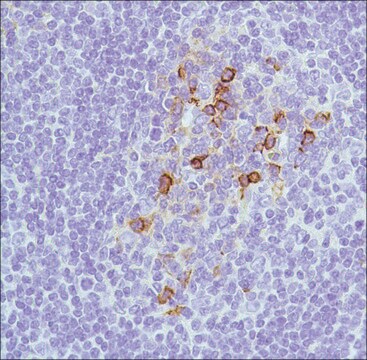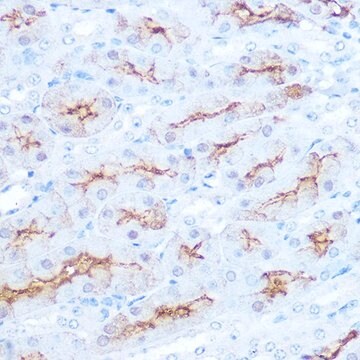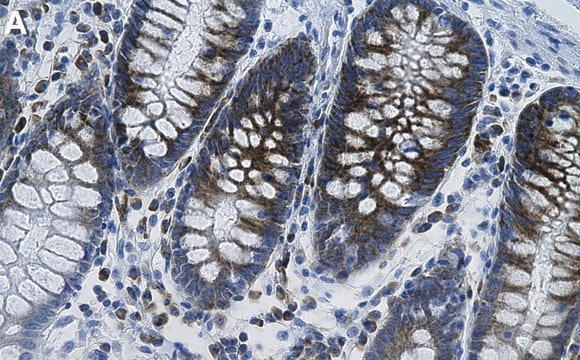138M-1
CD138/syndecan-1 (B-A38) Mouse Monoclonal Antibody
About This Item
Javasolt termékek
biológiai forrás
mouse
Minőségi szint
100
500
konjugátum
unconjugated
antitest forma
culture supernatant
antitest terméktípus
primary antibodies
klón
B-A38, monoclonal
leírás
For In Vitro Diagnostic Use in Select Regions (See Chart)
Forma
buffered aqueous solution
faj reaktivitás
human
kiszerelés
vial of 0.1 mL concentrate (138M-14)
vial of 0.5 mL concentrate (138M-15)
bottle of 1.0 mL predilute (138M-17)
vial of 1.0 mL concentrate (138M-16)
bottle of 7.0 mL predilute (138M-18)
gyártó/kereskedő neve
Cell Marque™
technika/technikák
immunohistochemistry (formalin-fixed, paraffin-embedded sections): 1:25-1:200
izotípus
IgG1
szabályozó
tonsil
kiszállítva
wet ice
tárolási hőmérséklet
2-8°C
vizualizáció
membranous
Géninformáció
human ... SDC1(6382)
Related Categories
Általános leírás
Minőség
 IVD |  IVD |  IVD |  RUO |
Kapcsolódás
Fizikai forma
Elkészítési megjegyzés
Egyéb megjegyzések
Jogi információk
Nem találja a megfelelő terméket?
Próbálja ki a Termékválasztó eszköz. eszközt
Tárolási osztály kódja
12 - Non Combustible Liquids
WGK
WGK 2
Lobbanási pont (F)
Not applicable
Lobbanási pont (C)
Not applicable
Válasszon a legfrissebb verziók közül:
Analitikai tanúsítványok (COA)
Nem találja a megfelelő verziót?
Ha egy adott verzióra van szüksége, a tétel- vagy cikkszám alapján rákereshet egy adott tanúsítványra.
Már rendelkezik ezzel a termékkel?
Az Ön által nemrégiben megvásárolt termékekre vonatkozó dokumentumokat a Dokumentumtárban találja.
Related Content
Diagnostic immunohistochemistry overview highlights its importance in cancer diagnosis and detecting infectious diseases in modern clinical pathology.
A diagnosztikai immunhisztokémiai áttekintés kiemeli annak jelentőségét a rákdiagnosztikában és a fertőző betegségek kimutatásában a modern klinikai patológiában.
Tudóscsoportunk valamennyi kutatási területen rendelkezik tapasztalattal, beleértve az élettudományt, az anyagtudományt, a kémiai szintézist, a kromatográfiát, az analitikát és még sok más területet.
Lépjen kapcsolatba a szaktanácsadással








